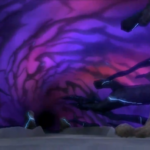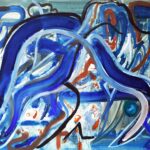Recent Comments
- Scott on Aloneness
- Chodpa on The Place where the Primordial Speaks
- Chodpa on The Cuckoo of Presence
- Afzar on Bodhidharma’s teacher, Prajnatara
- Vajragoni on Audiobook is released
-
Recent Posts
Categories
- A Darkness Visible
- A Docetic Assessment
- A Mystical Odyssey through the Sagathakam
- AI Creations
- Akṣayamatinirdeśasūtra
- Akṣhobhya’s Pure Land
- Ālaya-vijñāna
- Anūnatvāpūrṇatvanirdeśaparivarta
- Ariyapariyesanā Sutta
- Ascending the Noble Mountain of Primordial Perfection
- Asceticism
- Ashtavakra Gita in Light of the Unborn
- Audiobook
- Bankei Zen
- Beyond the Ascent
- Beyond the Rainbow Body
- Black Dragon Eye Mandala
- Bodhicitta
- Buddhadharma
- Buddhism’s Black Holes
- Buddhist Anecdotes
- Buddhist Hells
- Buddhist Meditations on the Tarot
- Chuang-Tzu
- Contemporary Musings
- Ḍākiṇī
- Dāsbodh
- Dharmakaya Abbey
- Dharmakaya Stick
- Divine Revelation
- Doctrine of the Void
- Dust Contemplation
- Ekacitta: Advanced Studies in Dark Zen
- Entry into the Dharmadhātu
- Eremitical Dhyani Meditations
- Exploring the Book of Revelation
- Gnostikos
- Hsin Hsin Ming
- Journey to the Center of the Mind
- Karma and Rebirth
- Korean Sŏn
- Kulayarāja Tantra—The Motherly Buddha
- Little Office of Our Lady of the Void
- LSD and Psychedelic Buddhism
- Māṇḍukya Kārikā
- Mañjuśrī Teaches Prajñāpāramitā
- Māra and Satan
- Meister Eckhart
- Mud and Water: Bassui Zen
- Mystagogia
- Nirvana
- Notes from the Iron Stupa
- Nothingness in Nāgārjuna and John of the Cross
- Obscure Religious Cults
- Preparation for the Afterlife
- Primordial Qigong
- Reflections on the Saṃdhinirmocana Sūtra
- Spirituality
- Springtime with Tozen
- Terma: A Mind Film by Vajragoni
- The Afterglow
- The Awakening of Faith
- The Bhagavad Gita
- The Book of Bodhi
- The Cloud of Unknowing in Light of the Unborn
- The Diamond Sutra
- The Divine Ātman
- The Divine Liturgy of Vajrasattva
- The Doctrine of Awakening
- The Dragon Mind of Zen Tarot
- The Elucidation of Consciousness
- The Experience of No-Self
- The Great Perfection of the Unborn Mind: A Book of Privy Counseling
- The Heart Sutra
- The Hermit's Den
- The Khaggavisāṇa Sutta: A Rhinoceros Horn
- The Lankavatara Sutra
- The Lankavatarian Book of the Dead
- The Lion's Roar of Queen Śrīmālā
- The Lotus Sutra
- The Mahāparinirvāṇasūtra
- The Naga Chronicles
- The Platform Sutra
- The Ratnagotravibhāgaśāstra
- The School of the Spirit
- The Secret Golden Light of the Unborn
- The Soul
- The Śūrańgama Sūtra
- The Sutra of Primordial Enlightenment
- The Tathāgatagarbhatārā Tantra
- The Udāna
- The Unborn Mind Mythos
- The Unborn Mind Sessions
- The Unborn Odyssey: A Novel
- The Vajrasamādhi Sutra
- The Vimalakirti Sutra
- The Yogasūtras of Patañjali
- The Zen Teaching of Bodhidharma
- The Zen Teaching of Instantaneous Awakening
- The Zen Teachings of Huang Po
- Theologia Mystica
- Tozen Teaching
- Tsung-mi: An Intimate Study
- Unborn I Ching
- Unborn Light Reiki
- Uncategorized
- Vasubandhu and the Absolute
- Wisdom from the Masters
- Wordsworth and Zen
- Yoga of the Manomayakāya
- Zen
- Zuowang
Archives
- October 2024
- August 2024
- February 2024
- January 2024
- December 2023
- November 2023
- October 2023
- September 2023
- August 2023
- July 2023
- June 2023
- May 2023
- April 2023
- March 2023
- February 2023
- January 2023
- December 2022
- November 2022
- October 2022
- September 2022
- August 2022
- May 2022
- April 2022
- March 2022
- February 2022
- January 2022
- December 2021
- November 2021
- October 2021
- September 2021
- August 2021
- May 2021
- April 2021
- March 2021
- February 2021
- January 2021
- December 2020
- November 2020
- October 2020
- September 2020
- August 2020
- May 2020
- April 2020
- March 2020
- February 2020
- January 2020
- December 2019
- November 2019
- October 2019
- September 2019
- August 2019
- June 2019
- February 2019
- January 2019
- December 2018
- October 2018
- August 2018
- April 2018
- March 2018
- February 2018
- January 2018
- December 2017
- November 2017
- October 2017
- September 2017
- August 2017
- May 2017
- April 2017
- March 2017
- February 2017
- January 2017
- December 2016
- November 2016
- October 2016
- September 2016
- August 2016
- July 2016
- May 2016
- April 2016
- March 2016
- February 2016
- January 2016
- December 2015
- November 2015
- October 2015
- September 2015
- August 2015
- July 2015
- June 2015
- May 2015
- April 2015
- March 2015
- February 2015
- January 2015
- December 2014
- November 2014
- October 2014
- September 2014
- August 2014
- May 2014
- April 2014
- March 2014
- February 2014
- January 2014
- December 2013
- November 2013
- October 2013
- September 2013
- August 2013
- May 2013
- April 2013
- March 2013
- February 2013
- January 2013
- December 2012
- November 2012
- October 2012
- September 2012
- August 2012
- May 2012
- April 2012
- March 2012
- February 2012
- January 2012
- December 2011
- November 2011
- October 2011
Meta
Monthly Archives: December 2021
Season of Stillness

By and large our completed series on Zuowang predominately stated that spiritual stability is the main component in a successful contemplative enterprise. This has much to do within Unborn Mind Zen on the Recollection of the Unmoving Principle–one that bypasses the diurnal moving samsaric wheel of dukkha. This is mostly orchestrated in the contemplative dimension of one-pointedness of mind, or Bi guan, thus quieting the mind from all sensory outflows. Also in league with our own spiritual tradition, Zuowang reinforced the notion of guarding the One. To do so without wavering involves ceaselessly recollecting the Unborn Buddha Mind as motionless and undisturbed in the Void. In doctrinal terms this One Singularity of Mind intuits itself and nothing else. This is also known within Unborn Mind Zen as Turning the Light around and protecting the Garbha-child. Essentially this involves an ever-abiding vigilance over the developing Child of Light (Bodhichild). This is singularly unique since the concentrated point of Unborn Light does indeed form mystically into the beloved Child of Suchness. A critical moment wherein the Spiritual-Principle transforms into a spiritual-child of light; from this moment onwards, it is this developing garbha-germ that now resumes the Recollective Resolve. Thus, the adept is really never alone during the Dark Night of Contemplation, as one is pregnant with this immaculate seed of all Buddhas. In terms of a Daoist formulation Qi can now flow smoothly throughout the body and spirit.
Fire the Photon Torpedoes!

To reinforce once again, within Zuowang stability is paramount. In this sense mind indeed must become stabilized—immovable—which within Unborn Mind Zen we refer to continually Recollect the Unmoving Principle. The following Tozen video from our Bodhichild channel on YouTube refines this in excellent fashion:
The Nine Realms of Darkness

The opening of the great Dhammapada, or the Law of Illumination, states that what the mind focuses on determines its reality. Anger is included here as being most dominant—as The Dhammapada in Light of the Unborn says, “hate is not pure but draining, indeed it is Mind turned against itself. Being free from hate and all abusive thoughts is the beginning of purification and the embrace of sweet peacefulness.” Zuowang paints a similar formulation when it comes to being tangled up in emotional affairs:
Posted in Zuowang
Tagged ANGER, Dhammapada, Hamlet, Nine Realms of Darkness, Threefold Heavens, William Blake
Leave a comment
The Modernity Fallacy

Zuowang has utilized different techniques designed for self-transformation via transcending personal-selfhood in ideally becoming unified with the Dao. Techniques such as regulating the breath, sitting in detached mindfulness, as well as ecstatic raptness. Many of these have become instituted in Westernized procedures that favor technique over substance.
Posted in Zuowang
Tagged Amoghasiddhi, David R. Hawkins, Modernity, The Presence, Unmoving Principle
Leave a comment
Entrancement

In the Daoist system Buddhaic dhyāna is translated as the stability of “cosmic peace.”
The adept has left all worldly involvements and deliberations behind and, as the Zuowang lun says, has reached “the first foothold of Dao.” The state of mind he finds himself in is characterized by a twofold structure, perfect serenity on the inside and a “heavenly light” radiating on the outside. This pair is also described as tranquility and wisdom in accordance with Zhuangzi terminology or as concentration and insight following Buddhist usage. (ibid, pg. 98)
Posted in Spirituality, Zuowang
Tagged aloneness, cosmic peace, Detachment from Affairs, entrancement, seminary, Woman Hunchback
Leave a comment
The Great Pervasion

For an added appraisal of our initial post in this series, Livia Kohn defines Zuowang thusly:
Zuowang 坐忘, “sitting in oblivion,” signifies a state of deep meditative absorption and mystical oneness, during which all sensory and conscious faculties are overcome and which is the base point for attaining Dao. I translate wang as “oblivion” and “oblivious” rather than “forgetting” or “forgetful” because the connotation of “forget” in English is that one should remember but doesn’t do so, or—if used intentionally—that one actively and intentionally does something in the mind. None of these holds true for what ancient and medieval Daoists were about. This is borne out both by the language and the writings: the word wang in Chinese consists of the character xin for “mind-heart,” usually associated with conscious and emotional reactions to reality and the word wang for “obliterate” or “perish.” The implication is—as indeed described in the sources—that one lets go of all kinds of intentional and reactive patterns and comes to rest in oneness with spirit and is ready to merge completely with Dao. (ibid, pg. 1)
Posted in Zuowang
Tagged an endless array of forgetfulness, cun, Great Pervasion, Qi Factor, wàng, Yan Hui
Leave a comment
Zuowang

Zuowang is a very rich Daoist term which will be our focus for this new series.
Zuowang:Sitting in oblivion. In later Daoism a technical term used to describe a state of deep trance or intense absorption, the notion of zuowang occurs first in the Zhuangzi, with the classical passage found in ch. 6: “I smash up my limbs and body, drive out perception and intellect, cast off form, do away with understanding, and make myself identical with the Great Thoroughfare”. The idea here as well as in the later tradition is a mental state of complete unknowing that involves a loss of personal identity and self and is the utter immersion in the nonbeing of the universe. (Daoism Handbook, pg. 46, edited by Livia Kohn)
Posted in Spirituality, Zuowang
Tagged Daoism, Livia Kohn, Mind-Fasting, Sitting in oblivion, Zuowang
Leave a comment
